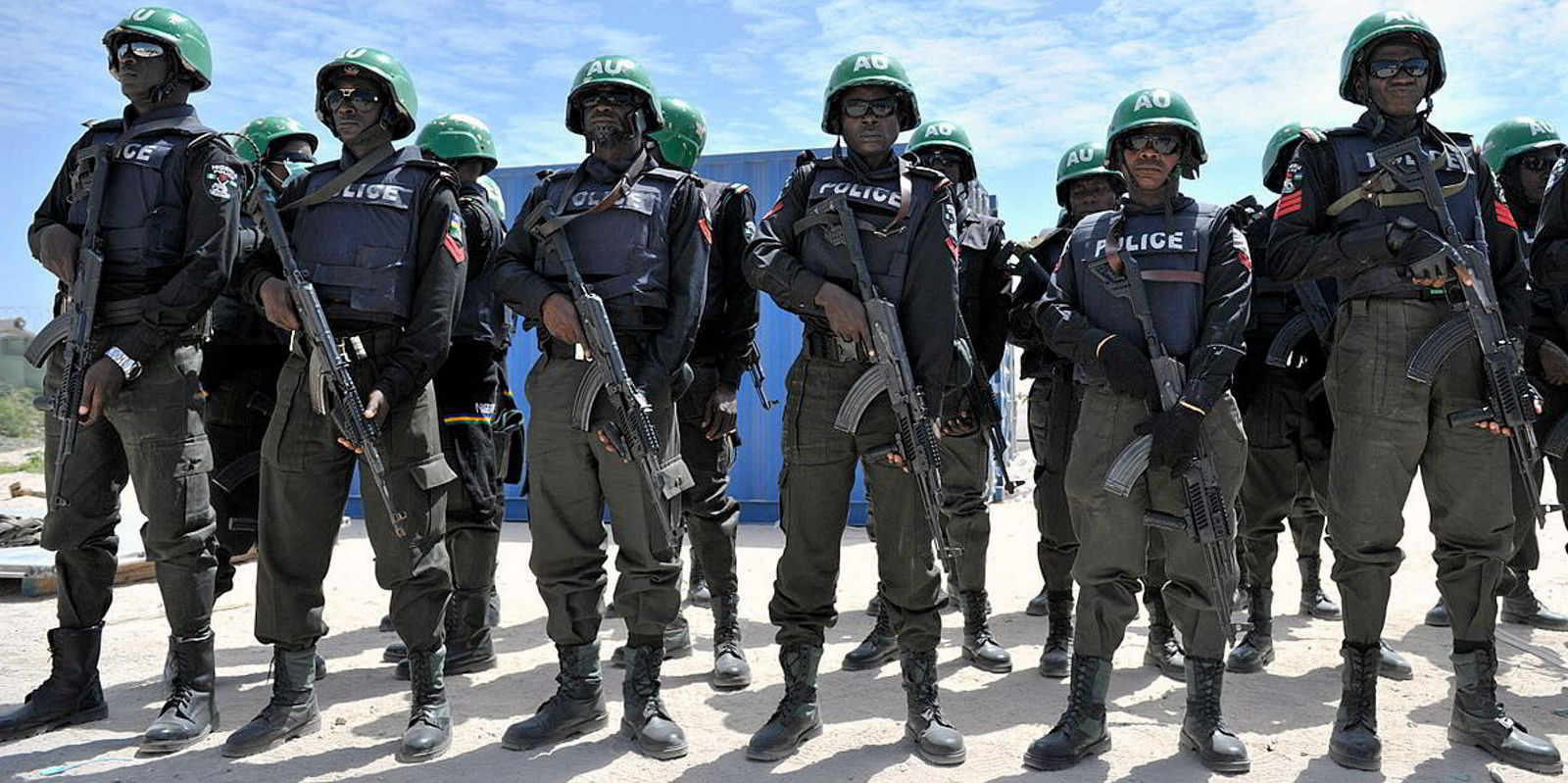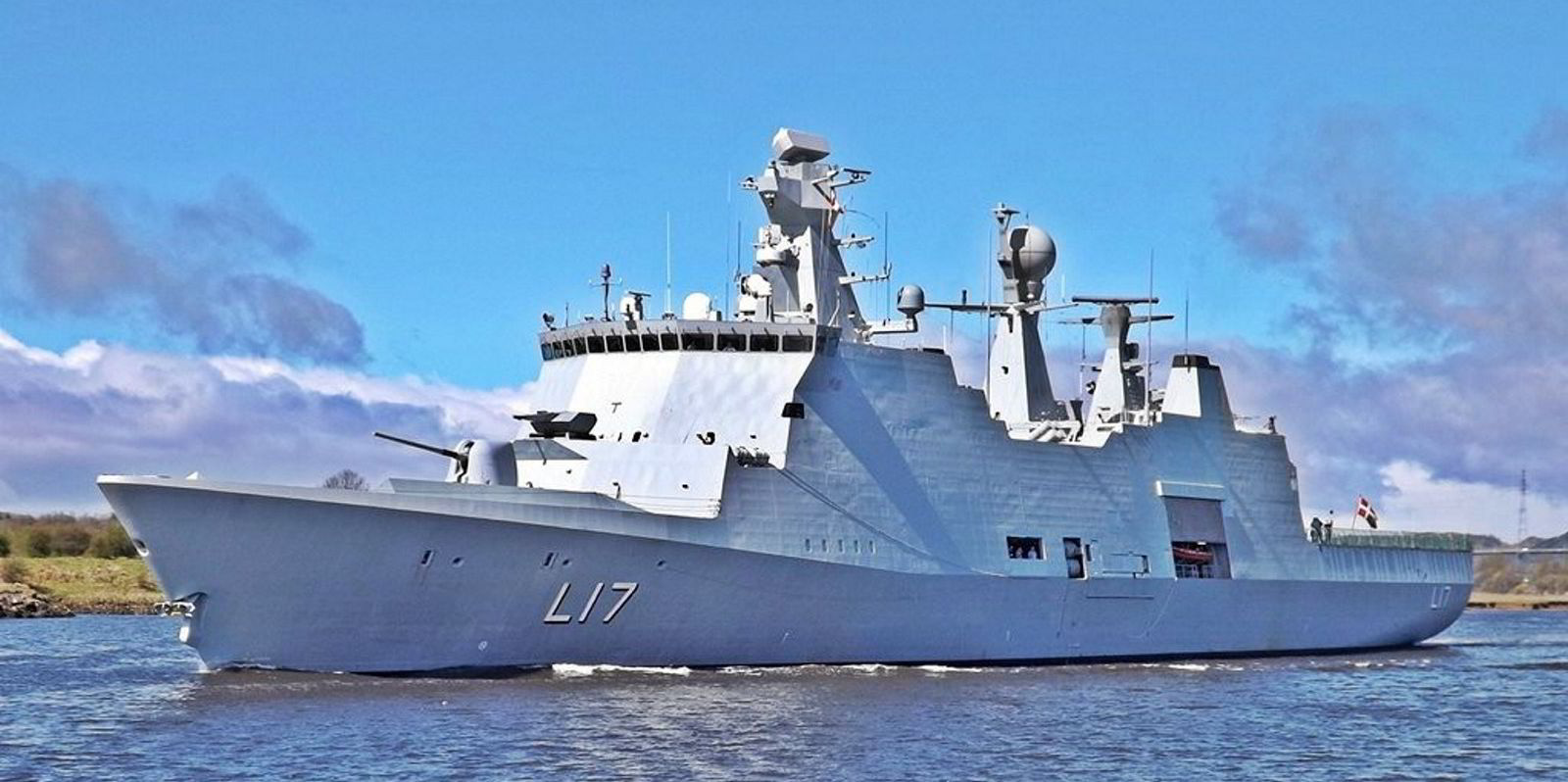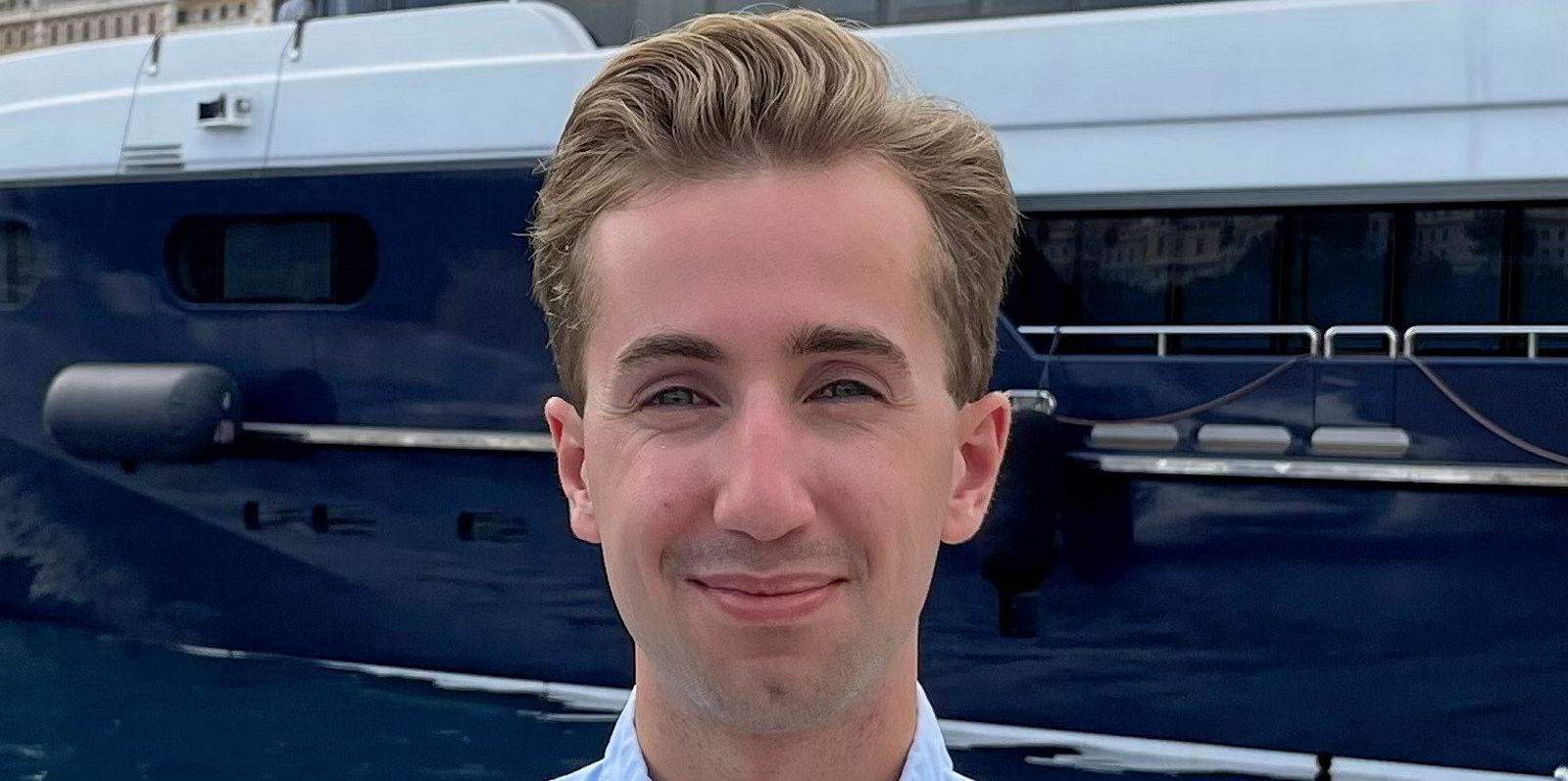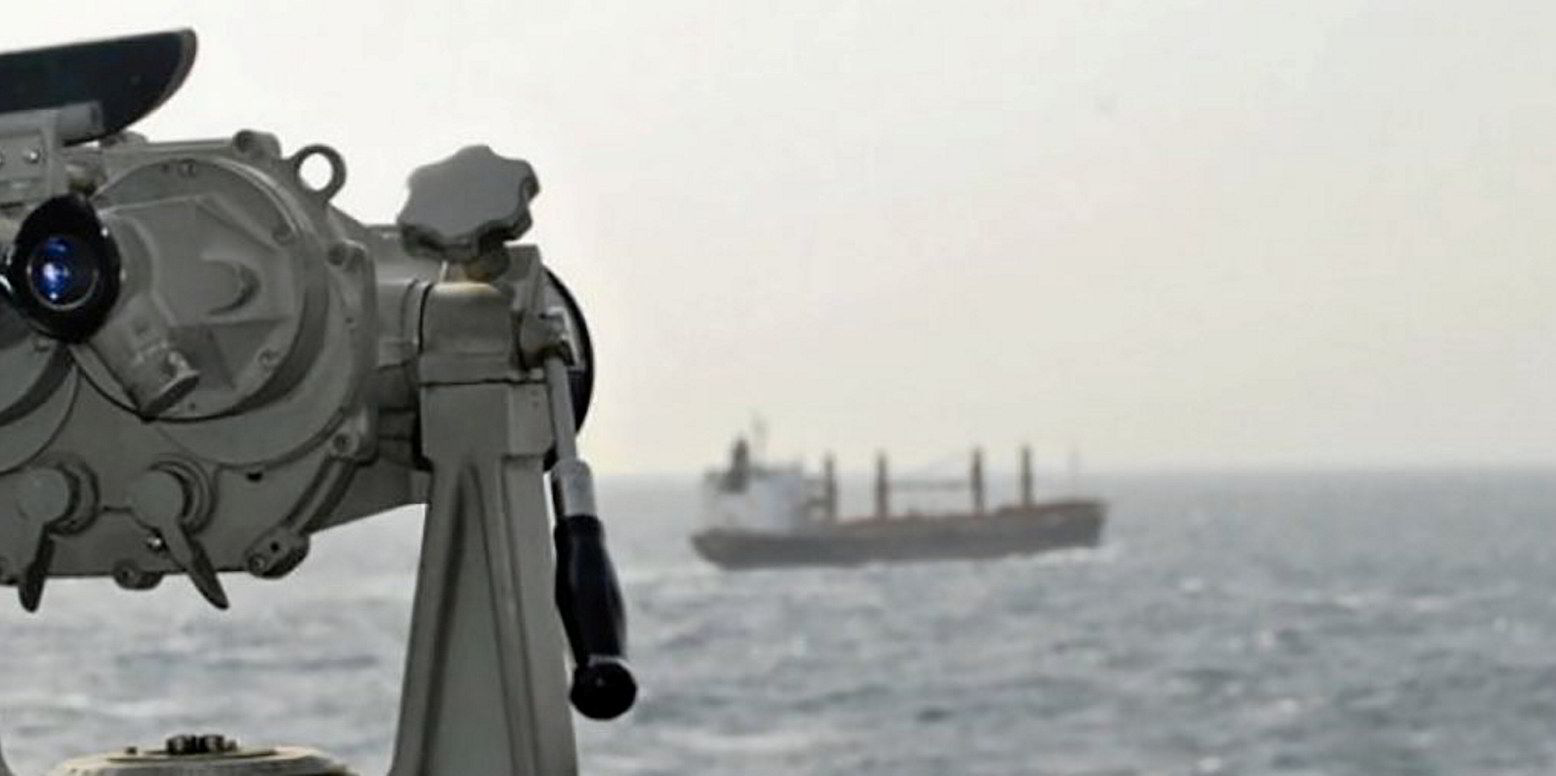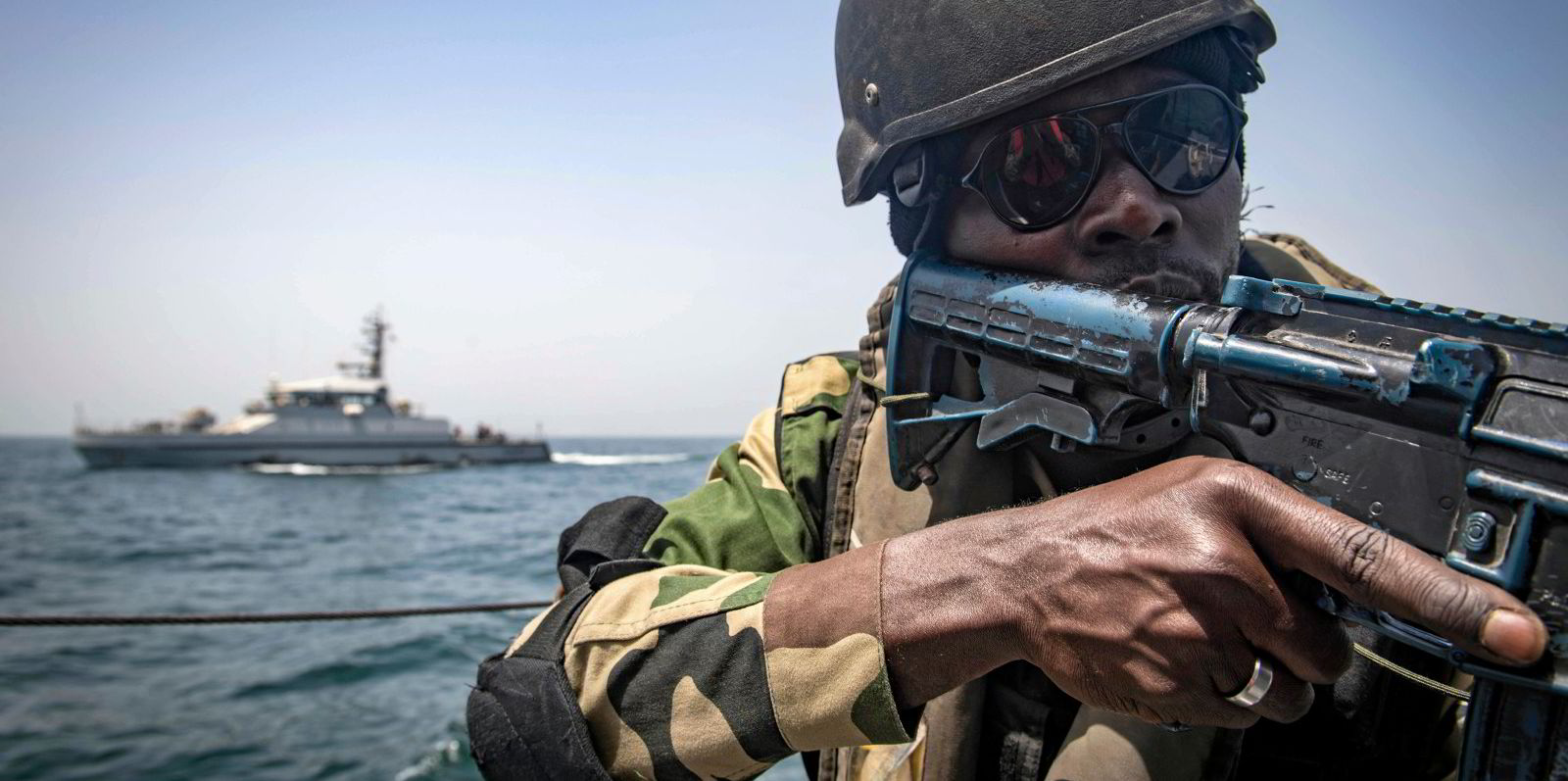Piracy and maritime crime throughout West Africa have shrunk by 54% this year but the causes have not been eradicated, warns shipping security company Dryad Global in a new report.
Incidents of actual and attempted attacks on vessels have declined by more than 75% in 2021, Dryad said in an article in its Metis Insights report.
The numbers of vessels boarded have fallen by 32% and incidents of being boarded and crews kidnapped have declined by 66%.
But Dryad said: "It would be disingenuous at best, and dangerous at worst to interpret the decline in piracy volumes in 2021 as indicative of any fundamental or lasting change brought about by any one state or initiative."
This is despite the launch in June 2021 of Nigeria's $195m plan to counter maritime crime in the Gulf of Guinea through the Integrated National Security and Waterways Protection Infrastructure programme — also known as the Deep Blue Project.
Dryad added that a further significant development, the passage of Nigeria's Suppression of Piracy and other Maritime Offenses (SPOMO) Act in 2019, was not necessarily a game-changer.
Deep Blue's phased deployment will include 16 armoured vehicles for coastal patrol, two special mission vessels, 17 fast interceptor boats, two surveillance aircraft and three search and rescue helicopters.
Its launch roughly correlated with the decline, But Dryad said: "There appears to be little tangible evidence of causation as it would be logical to expect a high number of piratical incidents to continue, albeit marked by an increasing number of successful counter-piracy operations."
The SPOMO Act gave Nigeria a leadership position by providing a legislative framework to support the prosecution of maritime crime.
However, Dryad said the "absence of data indicating a tangible and sustained engagement of assets in the interruption of offshore acts of piracy" suggested that both the act and Deep Blue were "far from solely responsible for the dramatic decline in piracy ".

Incident volumes had already radically departed from the established trend in the months prior to the launch of Deep Blue, it said, and the success of operations under SPOMO may not be known until later.
Dryad also said there was no tangible improvement in onshore conditions, such as poverty, unemployment, weak governance and corruption, that create fertile grounds to drive disenfranchised young men towards piracy to argue that there has been any reduction of intent to engage in it.
"Such is the potency of poverty; individuals are rarely deterred from engaging in crime solely because of increased resources aimed at combatting such crimes," Dryad argued.
The presence of naval ships put pressure on attacks, but disenfranchised young men were only incentivised away from East African piracy from Somali coastal communities after the launch of onshore economic development schemes.
Throughout 2021 there has been little substantive improvement in economic conditions throughout the Niger Delta states with the situation compounded by the impact of the Covid-19 pandemic.
The year has seen an increase in attacks on local riverine populations and a new militant grouping under the aegis of the Bayan-Men unleashing a campaign of violence against multinational oil companies.
The prevailing trends until 2021 also indicated an increase in the capability of pirate action groups to adapt to enhanced security by conducting operations further offshore.
But Dryad argued there was some indication that Deep Blue may have affected the potential for piracy through ineffectual governance and corruption.
"It is here that the greatest impact upon 2021 piracy statistics is likely to be found," it said, arguing that the legitimacy of corruption within governance is deeply ingrained within the southern Delta states.
That allowed piracy, as a form of serious organised crime, to occupy a 'grey space' between legitimate enterprise and criminal networks with members holding positions in business or local government, Dryad said, and led to "a vast network of criminality that spans narcotics and pharmaceutical product smuggling, illegal fuel bunkering, militancy, and piracy".
Inaugurated by President Buhari, Deep Blue may have disrupted this by increasing the level of domestic and international political focus.
"Such a focus is highly likely to have had a detrimental impact on the freedom of movement and operations of those who occupy the described grey space of legitimacy in the southern Delta," Dryad said.
With Nigeria calling for an end to war risk premiums for vessels operating in its waters, there is a great deal of political investment in the success of Deep Blue, it added, but warned the changes may not be permanent.
